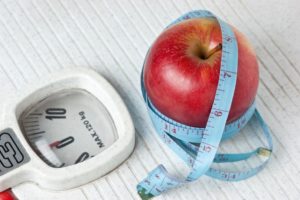
The purpose of any diet is to improve health, lose (or maintain) weight, and improve your lifestyle. It really is as simple as that. In terms of diets to choose from, a low-calorie diet for weight loss is generally one that is designed to succeed over a long(er) period of time.
It’s one that is easier to sustain than other options, and it’s the steady choice to achieve the weight loss you are seeking.
The appeal is easy to see. A low-calorie diet for weight loss is basic math. When you burn more calories than you’re consuming, then you are going to lose weight. There are a few things that factor into your personal calorie intake.
Click Here: Calorie Counting Made EasyWhat Constitutes A Low-Calorie Diet For Weight Loss?
A woman aged between 31 and 50, who is moderately active requires around 2000 calories daily. Men in the same age and activity range would need approximamty 2,500. To clarify, moderate activity counts as walking five days a week.
A low-calorie diet is anything between 800 and 1,500 (for women), and for men, between 1,200 and 2,000. This is a target designed to be fewer calories than your body will burn. This forces the body to turn to fat for energy, covering the shortfall of calories and therefore helping you lose weight!
The thing is, in terms of dieting, most of us aren’t average. We come in all shapes and sizes. Moreover, we all have different levels of physical activity.
Slow And Steady
Low-calorie diets allow you to lose weight steadily and over a longer period of time. For example, many experts suggest that a weight loss of one pound each week is ideal because this is weight you can keep off. There is nothing rapid about weight loss through a low-calorie diet. However, you may experience a fluctuation in how much you lose weekly.
The key to succeeding in a low-calorie diet is embracing it as part of your daily routine. It’s not a diet, it’s your lifestyle.
Beyond that, it’s important to balance your diet adequately. When dieting, it’s easy to fall into traps. You choose foods that are low in calories, but you haven’t considered the vitamins and nutrients your body needs to be appropriately energized.
While it’s important to count calories, you can’t let that become the sole focus and force you to miss out on fresh produce. There are more than enough calories available in a low-calorie diet to allow you to consume plenty of minerals, vitamins, and nutrients from food sources.
Calorie Counting
When you purchase packaged food, you will find the nutritional information required to make an informed decision. There are times when you may have to figure out calories based on the portion you have, but there are many good apps to choose from that will help you with this. The same can be said for fruits, vegetables, and other natural foods.
When it comes to eating out, you can still maintain a low-calorie diet. Many eateries provide the calorie counts of their meals on the menu. Just look for the kcal count. When you choose low-calorie meals or items, it’s also important to check the fat content.
Depending on how you eat normally, for some people simply cutting all their meal portions and snacks in half does the trick without having to count. It may seem like a hassle to count calories, but in the long run the benefits of lasting weight loss are worth it, and after a while you will become so familiar with various foods and their counts that you won’t have to count anymore.
The Easy Way To Count Your Calories
For more help understanding calories use an app like My Food Diary. It will help you to eat properly and be in control of your decisions, and by making healthy changes to your unhealthy habits you can lose all that weight and keep it off for a lifetime. Take the guesswork out of weight loss. Record your food and exercise, and My Food Diary will crunch the numbers for you.


Pingback: How Do Elimination Diets Work? - How To Get Flat Abs Fast